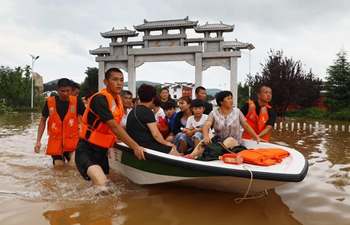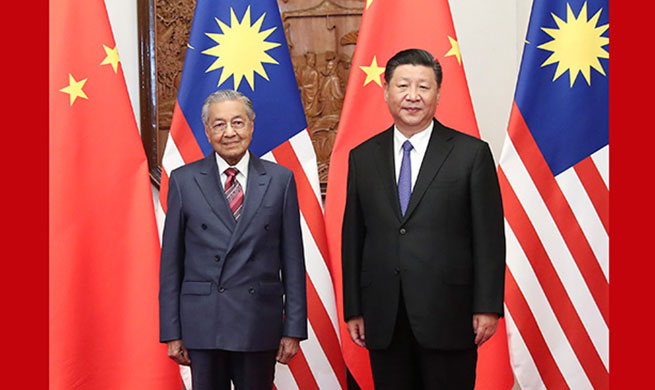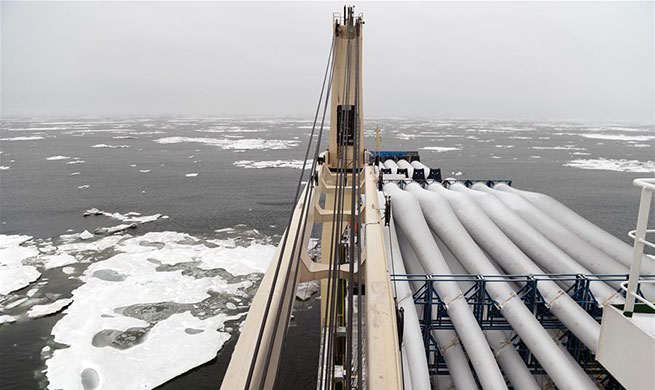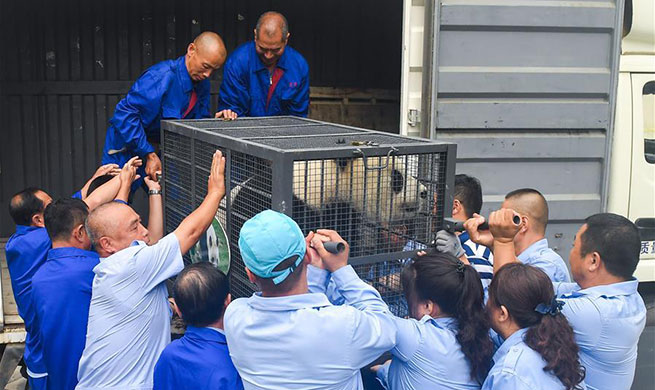by Murad Abdu
ADEN, Yemen, Aug. 20 (Xinhua) -- For the first time, Ahmed Obeid, a father of four, could not prepare for Eid al-Adha feast because the ongoing fighting forced him and thousands of Yemeni people to flee their homes.
They are located in different war-torn areas and take shelter in other safe provinces in the impoverished Arab country.
Yemeni families used to start preparing and shopping to enjoy Eid al-Adha, the second largest religious festival for Muslims, to be celebrated across the country on Tuesday.
But this year, thousands are suffering due to displacement and no preparations could be made to receive Eid al-Adha, as some families struggle to survive hunger and diseases after leaving their residential buildings.
Standing with his four children next to their tent at an internally displaced camp in the outskirts of Aden province, Obeid told Xinhua that there is no place for happiness to enjoy festival celebrations this year.
"This is the first Eid I receive without my beloved relatives. Fighting deprived us of staying inside our houses to receive Eid al-Adha peacefully with joy like previous years," he said.
He said that most of the displaced families are without financial sources and did not receive new clothes for their children from aid organizations.
"Some of the children inside these tents are crying and asking their mothers to buy them new Eid clothes and don't know that everything is changed and they are homeless," he said.
This Eid al-Adha means nothing for displaced Yemenis who are living in destitution, he said, adding that "stopping this ugly war and bloodshed will be our real festival. Shelling and fighting destroyed everything nice in our country."
In other Yemeni provinces including the Red Sea coast city of Hodeidah, fighting still takes place between government forces backed by the Saudi-led Arab coalition and the Shiite Houthi rebels even during Eid al-Adha holiday.
Some of the families in Hodeidah urged the two-warring sides to hold cease-fire to give citizens a chance to celebrate Eid al-Adha along with their children without fear and random shelling, but no response was made.
"The warring sides don't care about our suffering and only look for gains and seizing control over our areas," Fuad Saleh, an internally displaced person who arrived Monday in Aden.
"Muslim occasions mean nothing for the war leaders who came from other provinces and forced us to flee our houses and properties during Eid holiday," Fuad said.
"Most of the army commanders and the Houthi leaders are not from Hodeidah and their families are at safe places and just came to destroy our areas," he said angrily.
He added that "leaving our houses was something very painful but those military leaders didn't experience it and know nothing what displacement is."
On June 13, the Arab coalition, backing internationally-recognized government of Yemen's President Abd-Rabbu Mansour Hadi, declared a major assault to recapture Hodeidah and the Yemeni western Red Sea coast from the Houthis.
Yemen's government and Saudi Arabia have repeatedly accused the Houthis of using the port to smuggle Iranian weapons. Both Houthis and Iran denied the accusation.
Humanitarian agencies have warned of any attack on the port, saying it would lead to the world's biggest humanitarian catastrophe in modern history.
Hodeidah is the single most important point of entry for food and basic supplies to Yemen's northern provinces controlled by Houthis, including the capital Sanaa.
More than 121,000 residents have fled the war-torn city of Hodeidah and other parts of the province since June 1, the United Nations said this week.
The coalition intervened in Yemen's conflict in March 2015 to roll back Iran-allied Shiite Houthi rebels and reinstate Hadi.

















